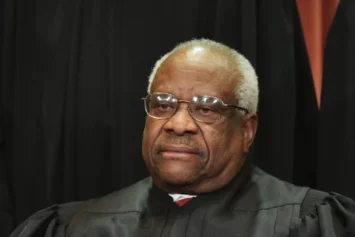Amid growing concerns about extremism in the military following the Jan. 6 Capitol riot,
Secretary of Defense Lloyd Austin has vowed to root out white supremacy from military ranks, he during his confirmation hearing before the Senate Armed Services Committee last month.
On Wednesday, he took to the first big step towards addressing the problem of extremism in the armed services, and ordered a stand-downs over the following 60 days to allow for “deeper conversation” on the matter.
Previously, at his Jan. 19 Senate confirmation hearing to become President Joe Biden’s secretary of defense, Austin said he would fight to rid the services of racist and extremists.
“We also owe our people a working environment free of discrimination, hate and harassment,” Austin wrote in his prepared remarks. “If confirmed, I will fight hard to stamp out sexual assault, to rid our ranks of racists and extremists, and to create a climate where everyone fit and willing has the opportunity to serve this country with dignity. The job of the Department of Defense is to keep America safe from our enemies. But we can’t do that if some of those enemies lie within our own ranks.”
The comments came after it was announced that a dozen National Guard members were pulled from inauguration security after they were flagged by the FBI’s vetting process.
Two Guard members were pulled over possible links to right-wing militias.
At the confirmation hearing, Austin did not provide details about how he would specifically address the issue of extremism in the military.
But on Wednesday, Feb. 3, Austin ordered all branches of the armed forces to conduct a “stand-down” period over the next two months for leaders to have a “deeper conversation” about the problem.
The order was delivered at a meeting with military leaders and the chairman of the Joint Chiefs of Staff.
“Even though the numbers might be small, they may not be as small as we would like them to be, or we believe them to be,“ Pentagon spokesman John Kirby said of the prevalence of troops with extremists views, ties or activities. “And that no matter what it is, it is not an insignificant problem.”
It’s not clear what Austin’s expectations are from the order. In the military, “stand-downs” are used to focus the attention of the entire force on a serious problem that requires every unit and every rank to put daily activity on hold to discuss the issue. Kirby said there was not one official in the room who didn’t agree there was a problem.
A late-January analysis by NPR found that 20 percent defendants in Capitol riot cases have served in the military. Veterans were overrepresented at the insurrection: Data from the US Census Bureau shows that just 7 percent of all American adults have served in the military.
“It wasn’t a blithe ‘Hey, just go talk to your people,’” Kirby said of Austin’s direction to the service secretaries and Joint Chiefs. “He was very clear that he wants commands to take the necessary time. And I didn’t hear him be overly proscriptive about that … to speak with troops about the scope of this problem, and certainly to get a sense from them about what they’re seeing at their level.”
According to Kirby, the FBI opened 143 investigations into troops and veterans in 2020, 68 of those for domestic extremism.


